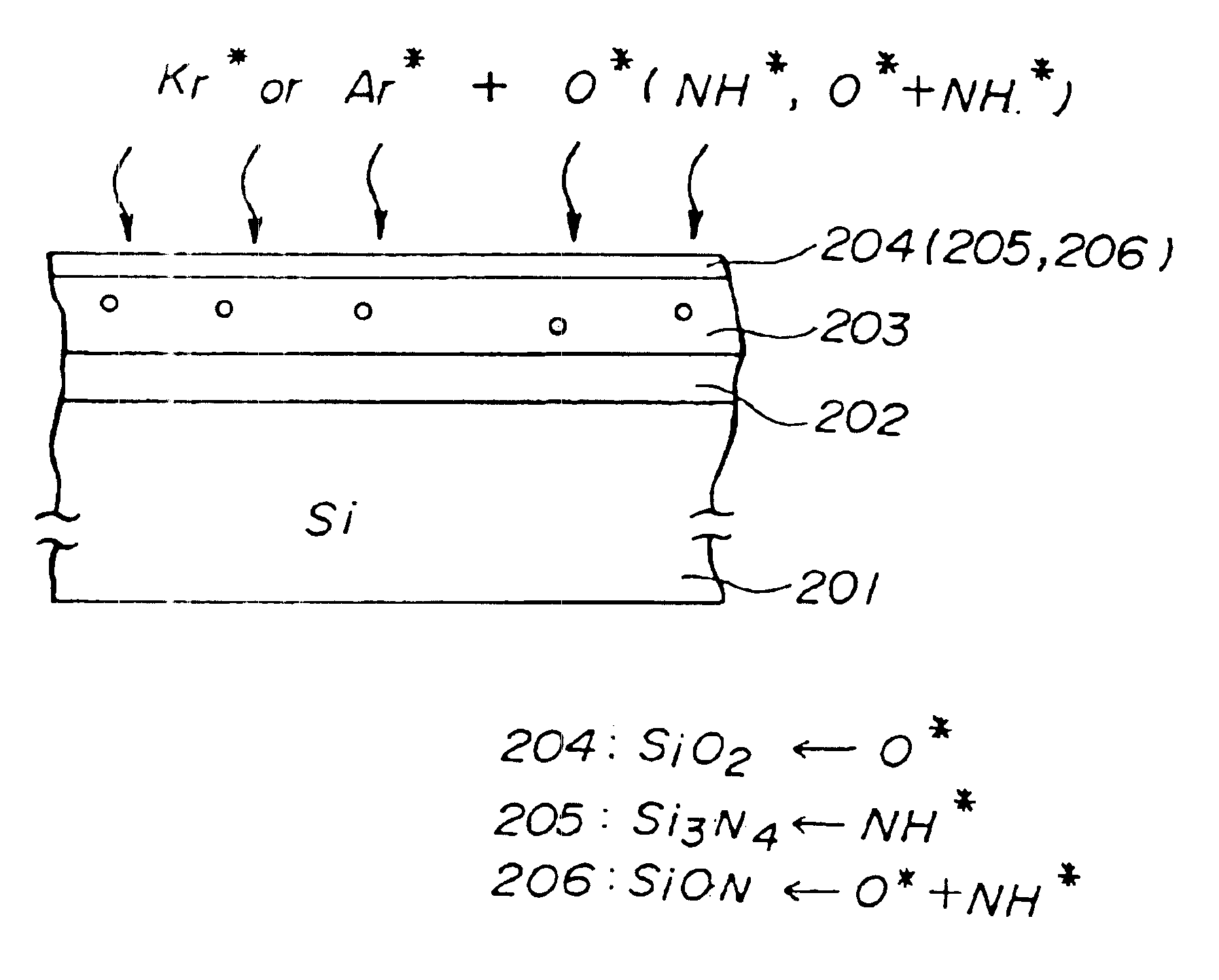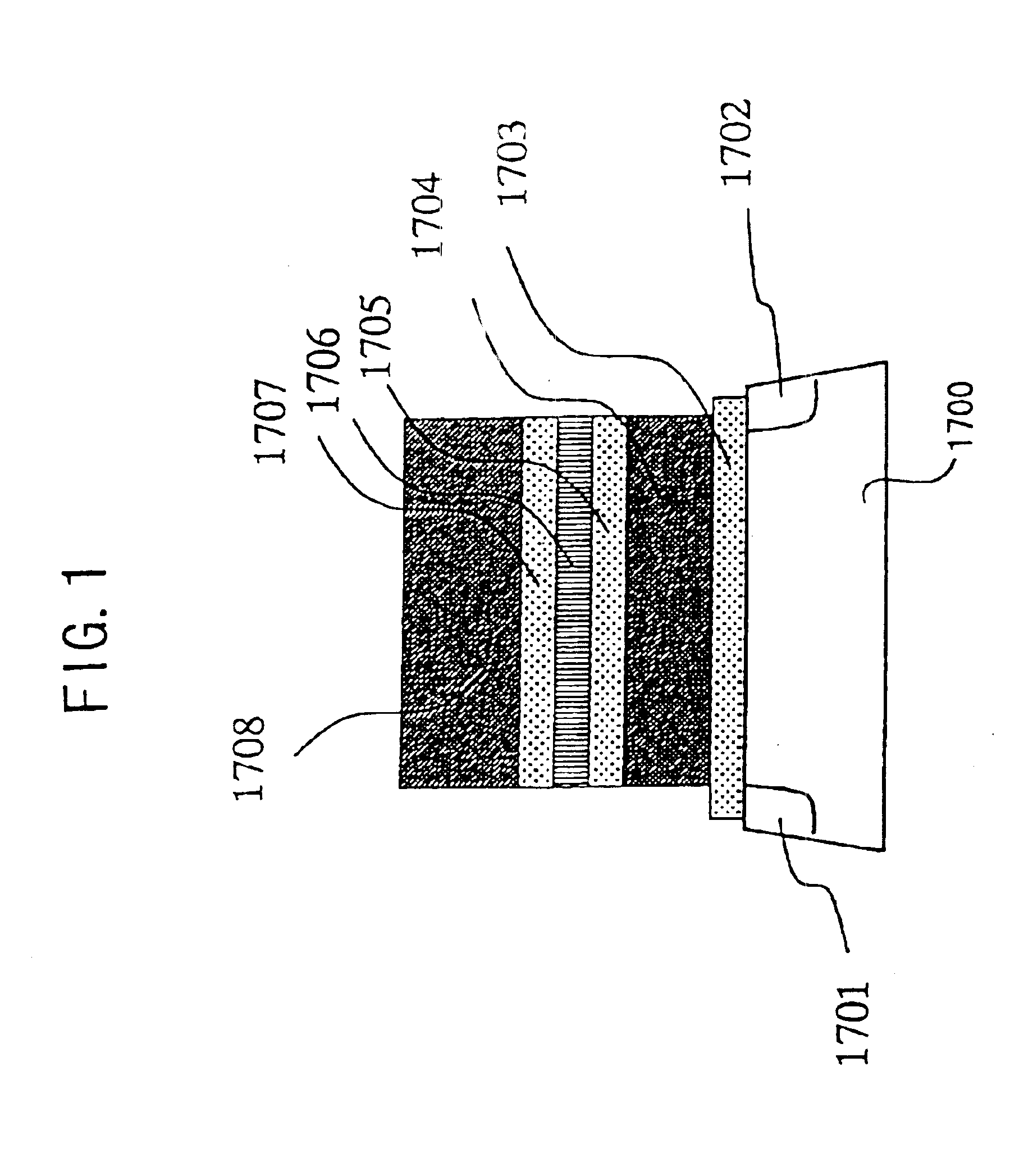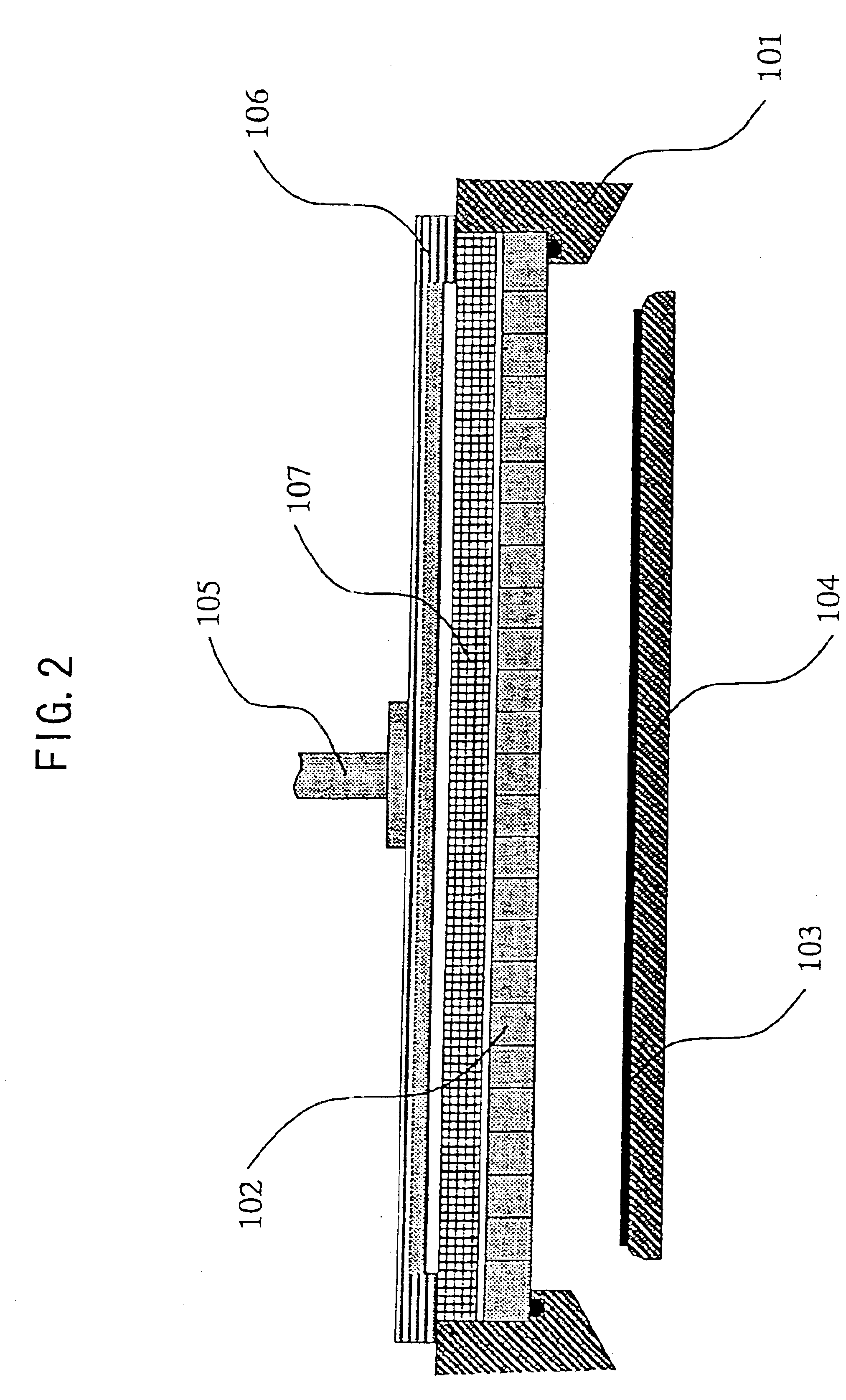Flash memory device and a fabrication process thereof, method of forming a dielectric film
a technology of flash memory and fabrication process, which is applied in the direction of solid-state devices, solid-state diffusion coatings, coatings, etc., can solve the problems of erroneous erasing, large substrate current, and degradation of device performan
- Summary
- Abstract
- Description
- Claims
- Application Information
AI Technical Summary
Benefits of technology
Problems solved by technology
Method used
Image
Examples
first embodiment
First, low temperature oxide film formation using plasma will be described.
FIG. 2 is a cross sectional diagram showing the construction of an exemplary microwave plasma processing apparatus used in the present invention for realizing the oxidation process, wherein the microwave plasma processing apparatus uses a radial line slot antenna (see WO98 / 33362). The novel feature of the present embodiment is to use Kr as the plasma excitation gas at the time of forming the oxide film.
Referring to FIG. 2, the microwave plasma processing apparatus includes a vacuum vessel (processing chamber) 101 accommodating therein a stage 104 on which a substrate 103 to be processed is supported. The processing chamber 101 is evacuated to a vacuum state, and a Kr gas and an O2 gas are introduced from a shower plate 102 formed at a part of the wall of the processing chamber 101 such the pressure inside the processing chamber is set to about 1 Torr (about 133 Pa). Further, a disk-shaped substrate such as a ...
second embodiment
Next, the process of forming a nitride film at a low temperature by using high-density microwave plasma will be described.
In the formation of the nitride film, the same apparatus as the one explained with reference to. FIG. 2 is used, except that Ar or Kr is used for the plasma excitation gas at the time of forming the nitride film.
Thus, the vacuum vessel (processing chamber) 101 is evacuated to a high vacuum state first, and the pressure inside the processing chamber 101 is then set to about 100 mTorr (about 13 Pa) by introducing an Ar gas and a NH3 gas via the shower plate 102, and the like. Further, a disk-shaped substrate such as a silicon wafer is placed on the stage 104 as the substrate 103 and the substrate temperature is set to about 500° C. As long as the substrate temperature is in the range of 400-500° C., almost the same results are obtained.
Next, a microwave of 2.45 GHz is introduced into the processing chamber from the coaxial waveguide 105 via the radial line slot ant...
fourth embodiment
Next, the construction of a flash memory device according to a fourth embodiment of the present invention will be described with reference to FIG. 18, wherein the flash memory device of the present embodiment uses the art of the low-temperature oxide film formation conducted in the microwave plasma explained before.
Referring to FIG. 18, the flash memory device is constructed on a silicon substrate 1001 and includes a tunneling oxide film 1002 formed on the silicon substrate 1001 and a first polysilicon gate electrode 1003 formed on the tunneling oxide film 1002 as a floating gate electrode, wherein the polysilicon gate electrode 1003 is covered by a silicon oxide film 1004, and a second polysilicon gate electrode 1008 is formed on the silicon oxide film 1004 as a control gate electrode. In FIG. 18, illustration of source region, drain region, contact holes, interconnection patterns, and the like is omitted.
In the flash memory device of such a construction, a high quality film charac...
PUM
| Property | Measurement | Unit |
|---|---|---|
| Electron concentration | aaaaa | aaaaa |
Abstract
Description
Claims
Application Information
 Login to View More
Login to View More - R&D
- Intellectual Property
- Life Sciences
- Materials
- Tech Scout
- Unparalleled Data Quality
- Higher Quality Content
- 60% Fewer Hallucinations
Browse by: Latest US Patents, China's latest patents, Technical Efficacy Thesaurus, Application Domain, Technology Topic, Popular Technical Reports.
© 2025 PatSnap. All rights reserved.Legal|Privacy policy|Modern Slavery Act Transparency Statement|Sitemap|About US| Contact US: help@patsnap.com



